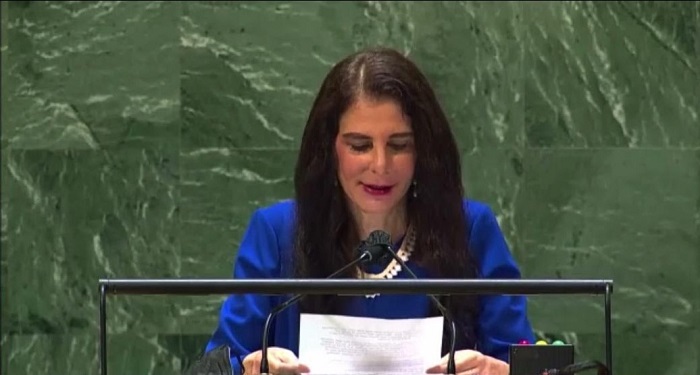The Women’s Earth and Climate Action Network (WECAN) on Monday, June 23, 2025, hosted the first day of the “Global Women’s Assembly for Climate Justice: Path to COP30 and Beyond” which features over 125 women policymakers, government officials, and community leaders from 50 countries advocating to advance global climate justice solutions.

WECAN Founder and Executive Director, Osprey Orielle Lake, opened the Assembly by explaining the focus on women as climate leaders: “Women are not just fighting for climate justice, we are innovating it. Research shows that everywhere in the world, where women have greater agency and political power, carbon emissions are lower and social and environmental policies are more effective. Yet women remain vastly underrepresented in climate negotiations and decision-making.”
She continued to contextualise this year’s climate negotiations under the current political context, stating, “We can’t separate the failure of governments to act ambitiously on climate from institutional patriarchy and the global rise in authoritarianisms. And right now, this is playing out heavily in the United States. We are seeing rollbacks on environmental protections, attacks on reproductive rights, criminalisation of peaceful protests, and disinformation campaigns targeting climate and racial justice. To build the healthy and just world that we want, we must amplify women’s voices not just as participants but as the architects of a thriving future.”
Opening day speakers from South Africa, Norway, Fuji, Ecuador, and more emphasised the importance of bold climate action at this year’s COP30 in Brazil. The virtual event kicked off with WECAN and over 160 signatories – including Amazon Watch, Rainforest Action Network, Women Deliver, Canadian Senator Rosa Galvez, and New Zealand MP Debbie Ngarewa-Packer – releasing a Call To Action urging governments, financial institutions, and corporations to take effective and immediate climate action by enacting policies that match the scale of interlocking and accelerating climate and social crises.
South African Project Specialist and Social Justice Consultant, Zukiswa White, joined the Assembly from Bonn, Germany where she is part of a delegation attending the annual mid-year climate change conference, and offered an assessment of the political will for climate action that will inform COP30.
She stated, “We are in a political climate where inspired action and leadership feels lower than ever, despite this being a record-breaking year in terms of warming. Upholding systems that violate planetary boundaries and dishonor life, is a political choice. Delaying meaningful progress on achieving the goals of the Paris Agreement must be understood for what it is: it is a matter of politics. Our work is to make climate justice outcomes a political inevitability. Only our organising allows us to stand a chance to fight the lethargy of the UNFCCC, which is currently not fit for purpose, and move into implementation of policies that not only halt devastation but also champion democratic, gender-transformative, and community-based solutions.”
The Call to Action and the day’s speakers laid out priorities for climate action that nations need to advance in order to prevent catastrophic global warming, including: halting fossil fuel extraction and greenwashing in climate action, ending deforestation, and promoting women’s climate leadership and gender equity.
Adenike Titilope Oladosu, Executive Director of I Lead Climate Action Initiative, spoke on some of the everyday climate effects faced by women in her home country of Nigeria where drought caused by climate change forces women to walk for hours to access water, amounting to 40 billion hours a year across Sub-Saharan Africa.
Adenike’s organisation has supported 100,000 women to access resources that can help make their time more productive in the face of climate change and patriarchal policies that prevent land ownership and access to other necessities.
She stated, “When women have platforms, they become the true custodians of the environment and also become change makers in their society.”
